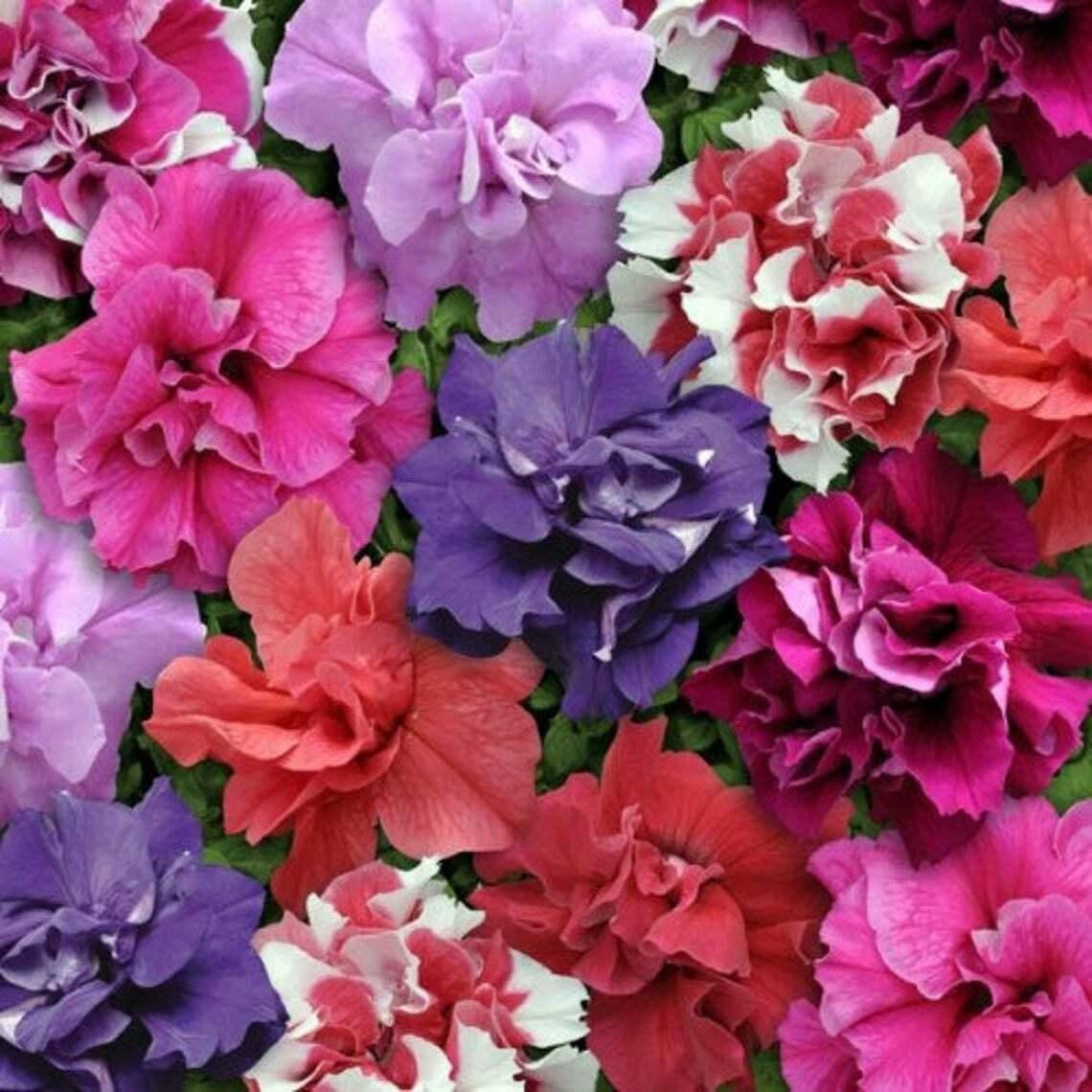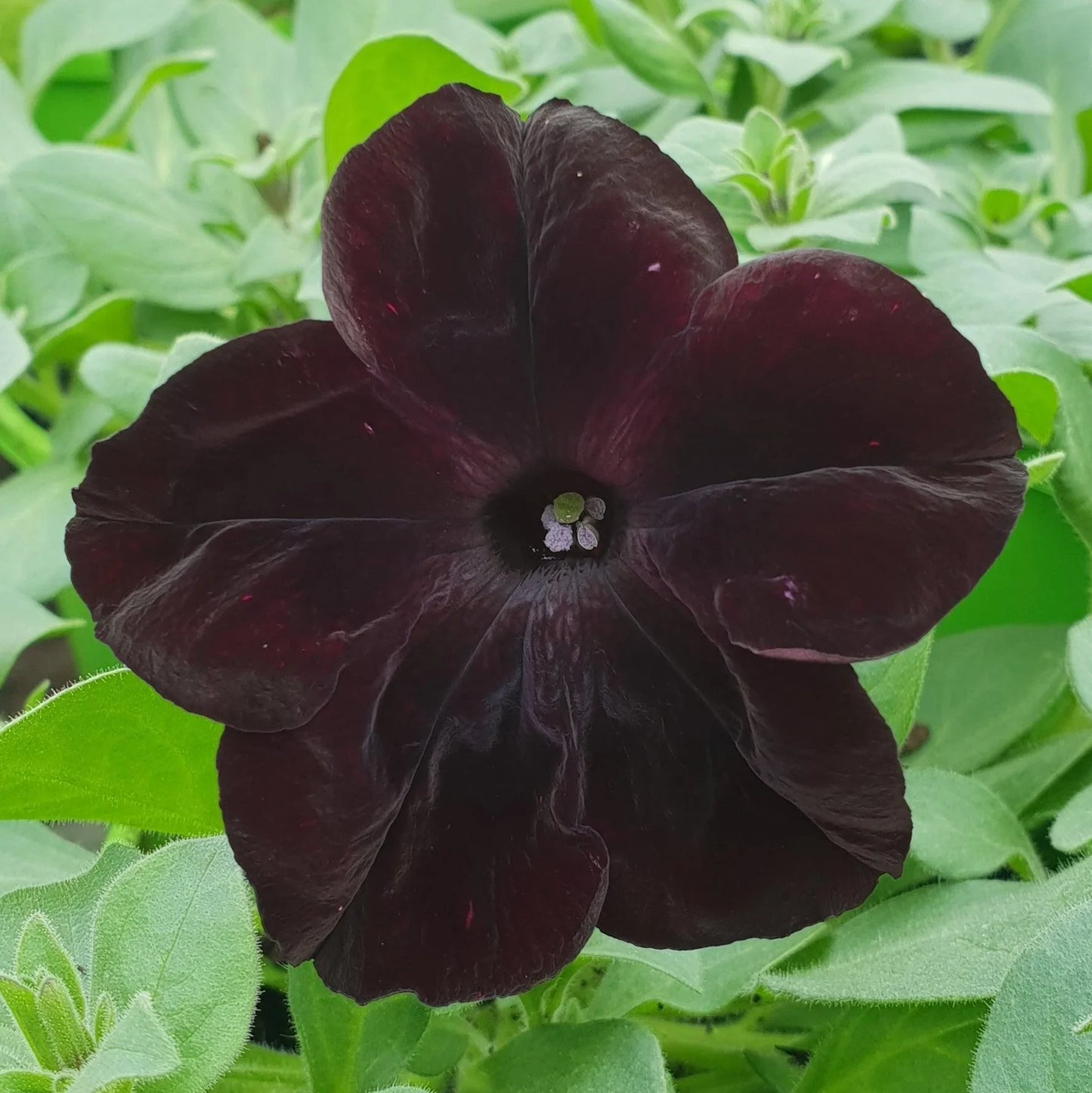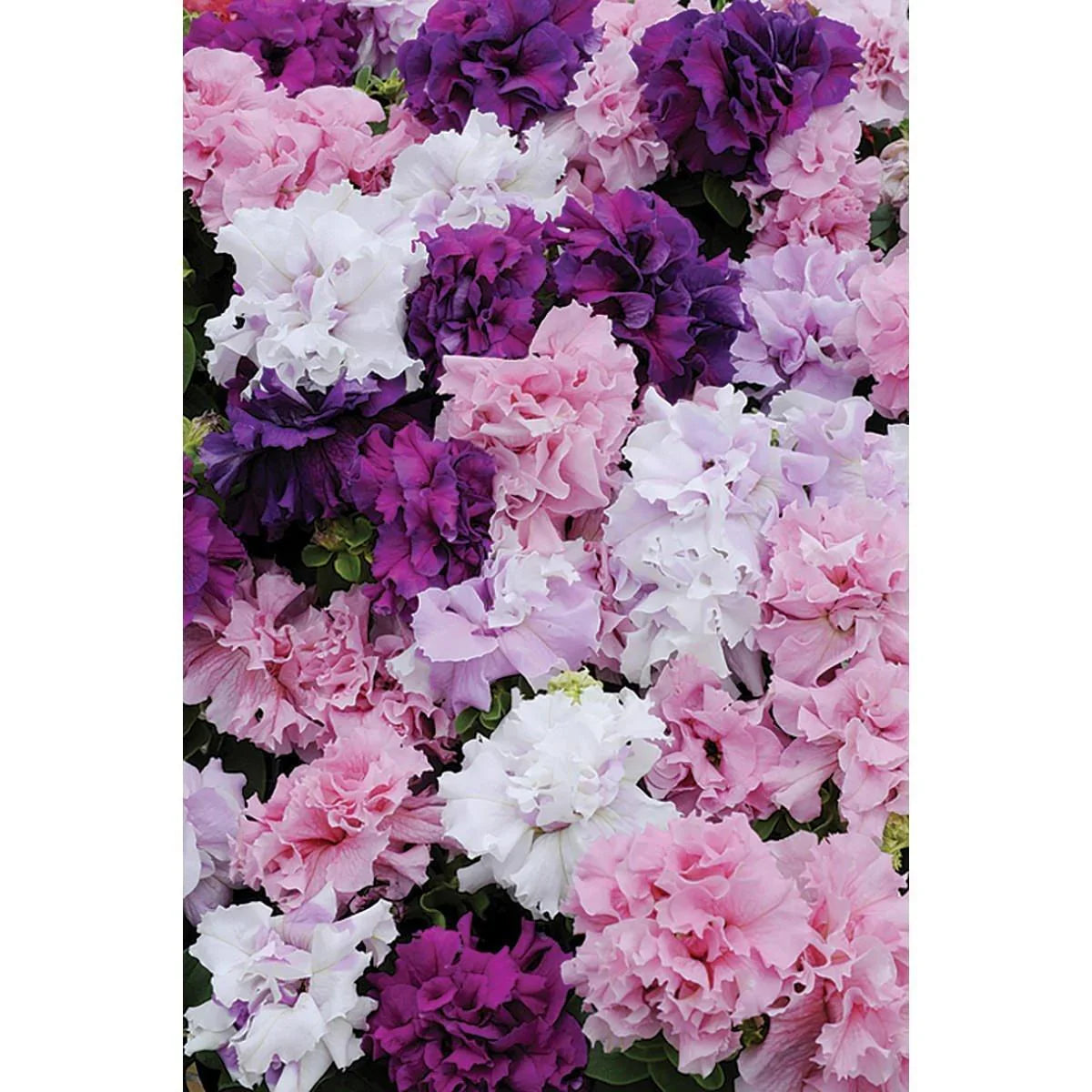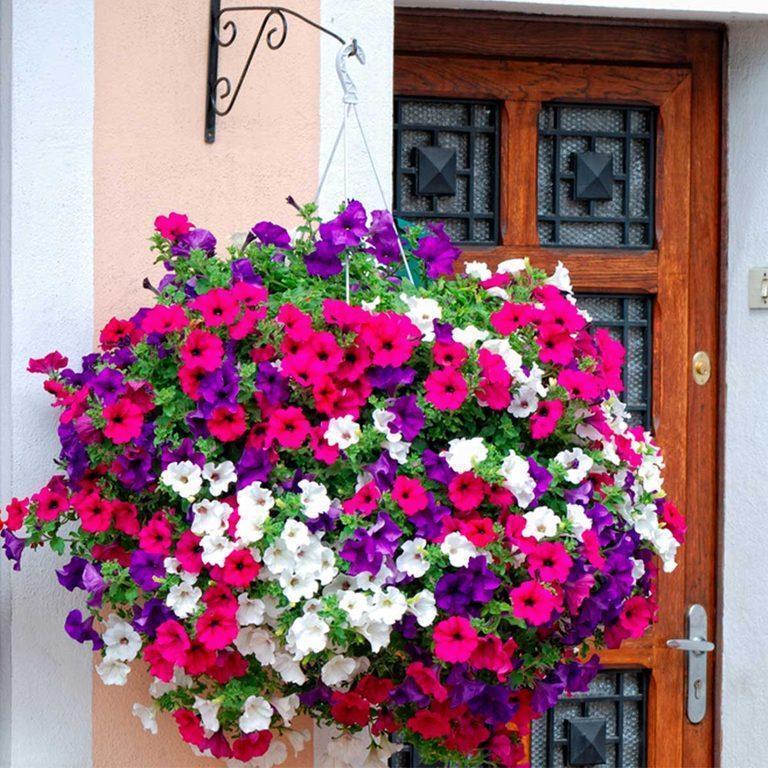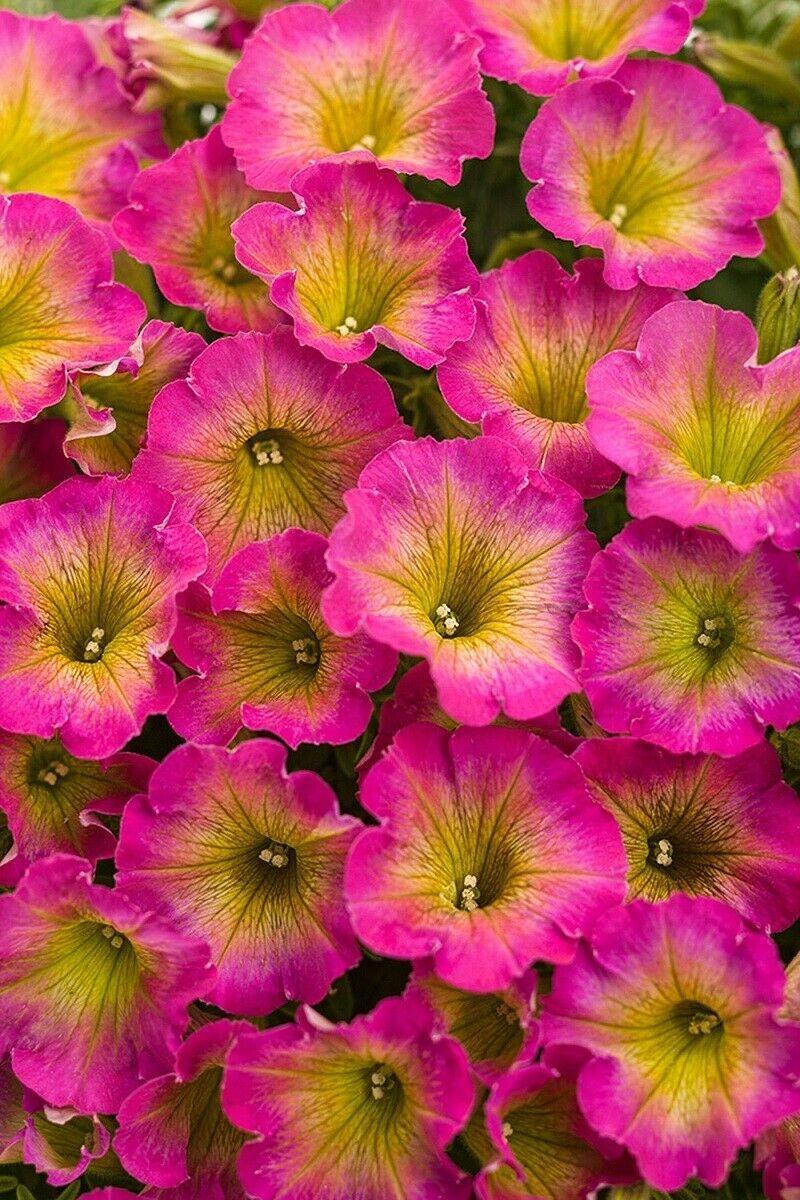1
/
of
2
Seed World
50 Petunia Seeds - Containers Hanging Baskets Flowers - Annual Bloom
50 Petunia Seeds - Containers Hanging Baskets Flowers - Annual Bloom
No reviews
Regular price
$14.99 USD
Regular price
Sale price
$14.99 USD
Unit price
/
per
Shipping calculated at checkout.
Couldn't load pickup availability
Genus: Petunia
Plant Type: Flower
Light: Full Sun
Bloom Start to End: Early Summer - Late Summer
Habit: Compact
Plant Height: 8 in - 10 in
Bloom Size: 3.5 in
Description:
Petunias are so reliable and have such a wide variety of uses that it’s no wonder it’s one of the most popular garden flowers today. It’s simple to buy a couple of petunia seedlings to fill one planter, but for mass plantings and garden edging, growing petunias from seed is the way to go. You’ll save money because of the sheer number of plants you need, plus you’ll have a much wider range of flowers to choose from. Garden centers only carry a few varieties already sprouted and growing, but you can find petunia flower seeds for different sized plants, in almost every color of the rainbow
Growing Petunias From Seeds:
The most important point to remember when learning how to start petunias from seeds is that these are summer, heat-loving plants. It does them no good to plant them early in the garden, as they’ll just sit and sulk or rot. In order to get these seedlings to planting size at the right time, you need to start them indoors at least 10 weeks before planting time. In the north, this is around the first week of March and will be even earlier in more southern states.
Although petunias are tough and resilient in the garden, they can be very delicate in the first weeks of life.
Start out with a dedicated seed-starting soil mix and new or sterilized planting trays. Of course, you can also start them in eggshells for easier transplanting later.
Sprinkle the tiny seeds on top of the mix and gently moisten them with a spray bottle.
Cover the tray with plastic wrap to retain moisture and place it in a bright place out of direct sunlight that averages around 75 F. (24 C.).
Remove the plastic wrap once the seeds sprout and place the trays under lights in a cooler spot, around 65 F. (18 C.) during the day.
Keep the lights about 6 inches (15 cm.) above the tops of the plants.
Use water-soluble fertilizer once every two weeks, and water the plants when the soil dries out.
Transplant the seedlings into individual pots once they develop two or three true leaves.
Lift out individual plants with a wooden stick or butter knife, and transplant them into potting soil.
Keep the soil moist but well-drained, and return them to under the lights until it’s time to plant them outside.
Additional Tips for Growing Petunias from Seed:
When starting petunia seed plants, remember that the seeds are very tiny. It’s easy to over-plant the trays, ending up with dozens of seedlings you don’t need.
Sprinkle them gently on top of the soil, using only a small pinch of seeds.
Petunia seed propagation only happens when they get the right amount of light. Don’t bother to buy special plant-growing light. Regular fluorescent lights work just as well.
Place the plants on a shelf and hang the light directly above them.
Move the lights upward as the plants grow, always keeping the lights 6 inches above the leaves.
Plant Type: Flower
Light: Full Sun
Bloom Start to End: Early Summer - Late Summer
Habit: Compact
Plant Height: 8 in - 10 in
Bloom Size: 3.5 in
Description:
Petunias are so reliable and have such a wide variety of uses that it’s no wonder it’s one of the most popular garden flowers today. It’s simple to buy a couple of petunia seedlings to fill one planter, but for mass plantings and garden edging, growing petunias from seed is the way to go. You’ll save money because of the sheer number of plants you need, plus you’ll have a much wider range of flowers to choose from. Garden centers only carry a few varieties already sprouted and growing, but you can find petunia flower seeds for different sized plants, in almost every color of the rainbow
Growing Petunias From Seeds:
The most important point to remember when learning how to start petunias from seeds is that these are summer, heat-loving plants. It does them no good to plant them early in the garden, as they’ll just sit and sulk or rot. In order to get these seedlings to planting size at the right time, you need to start them indoors at least 10 weeks before planting time. In the north, this is around the first week of March and will be even earlier in more southern states.
Although petunias are tough and resilient in the garden, they can be very delicate in the first weeks of life.
Start out with a dedicated seed-starting soil mix and new or sterilized planting trays. Of course, you can also start them in eggshells for easier transplanting later.
Sprinkle the tiny seeds on top of the mix and gently moisten them with a spray bottle.
Cover the tray with plastic wrap to retain moisture and place it in a bright place out of direct sunlight that averages around 75 F. (24 C.).
Remove the plastic wrap once the seeds sprout and place the trays under lights in a cooler spot, around 65 F. (18 C.) during the day.
Keep the lights about 6 inches (15 cm.) above the tops of the plants.
Use water-soluble fertilizer once every two weeks, and water the plants when the soil dries out.
Transplant the seedlings into individual pots once they develop two or three true leaves.
Lift out individual plants with a wooden stick or butter knife, and transplant them into potting soil.
Keep the soil moist but well-drained, and return them to under the lights until it’s time to plant them outside.
Additional Tips for Growing Petunias from Seed:
When starting petunia seed plants, remember that the seeds are very tiny. It’s easy to over-plant the trays, ending up with dozens of seedlings you don’t need.
Sprinkle them gently on top of the soil, using only a small pinch of seeds.
Petunia seed propagation only happens when they get the right amount of light. Don’t bother to buy special plant-growing light. Regular fluorescent lights work just as well.
Place the plants on a shelf and hang the light directly above them.
Move the lights upward as the plants grow, always keeping the lights 6 inches above the leaves.
Share
